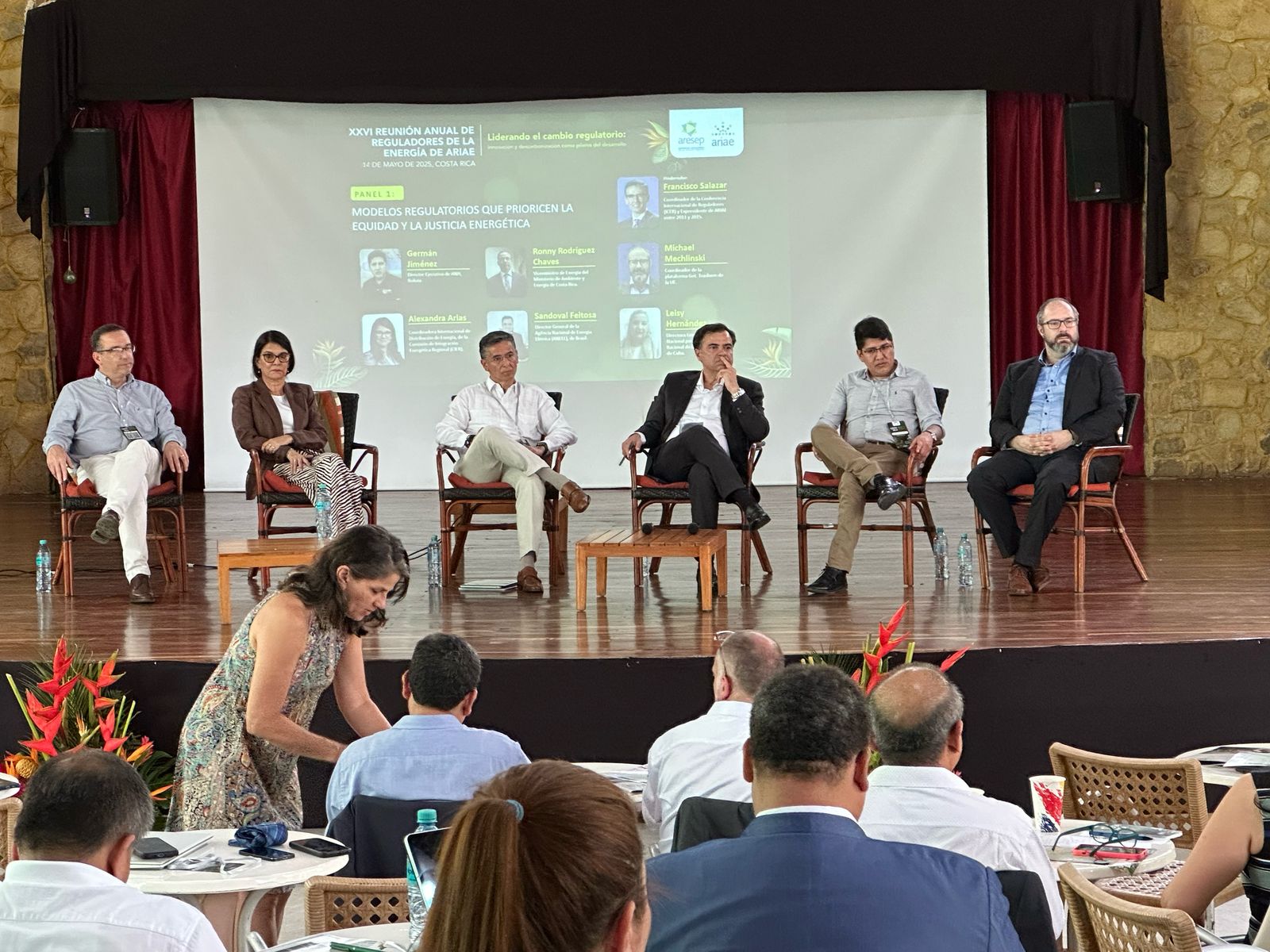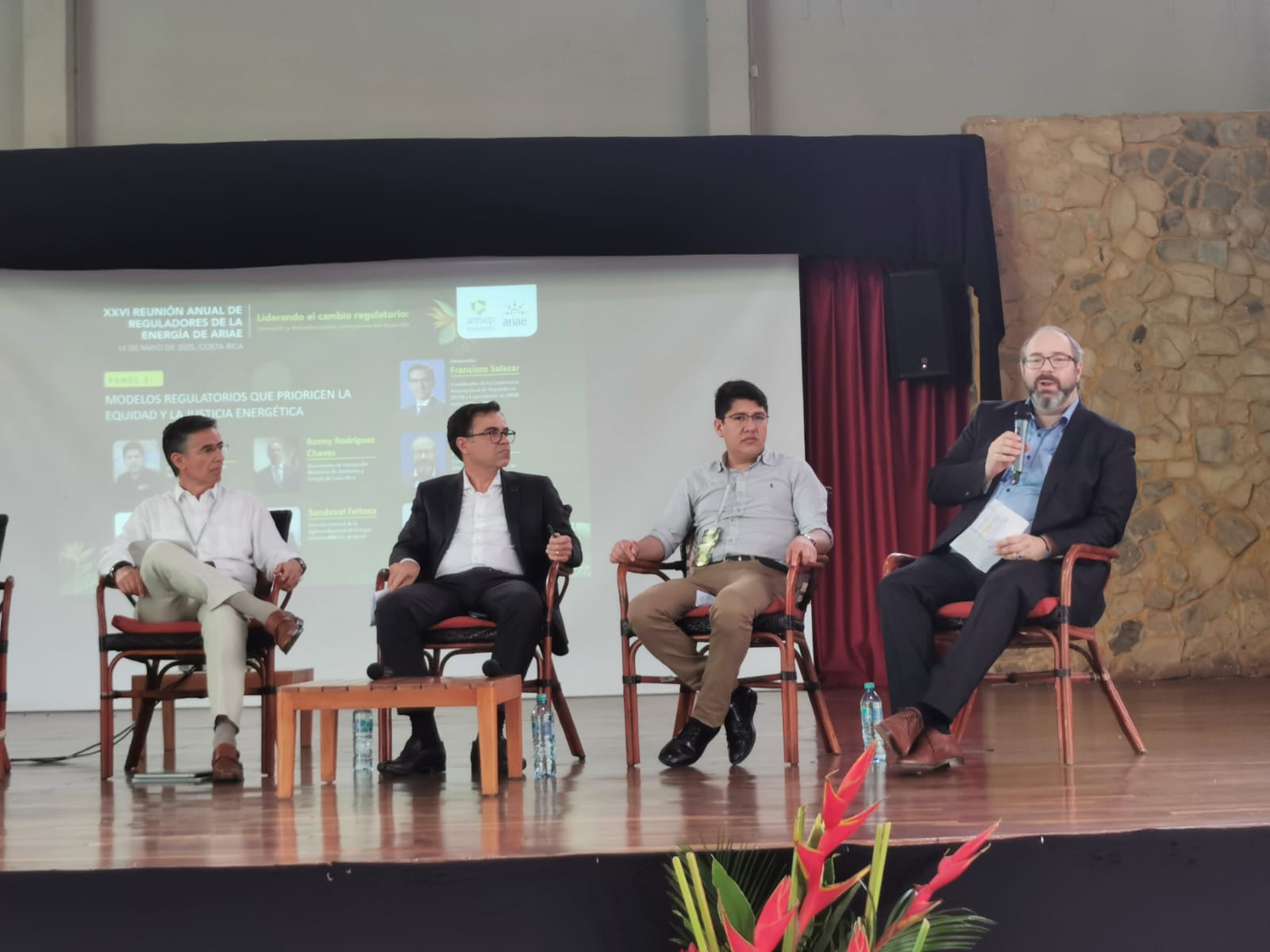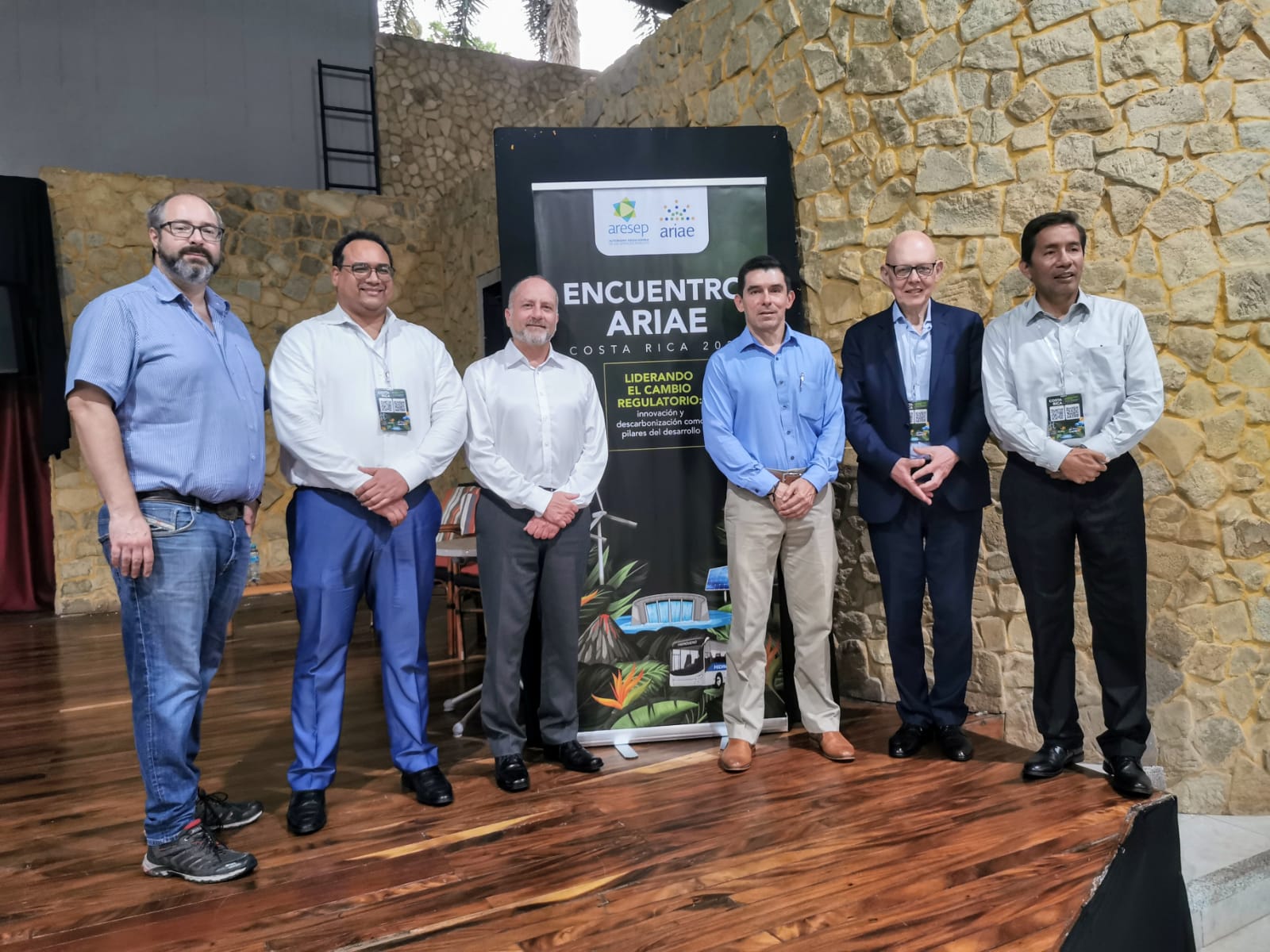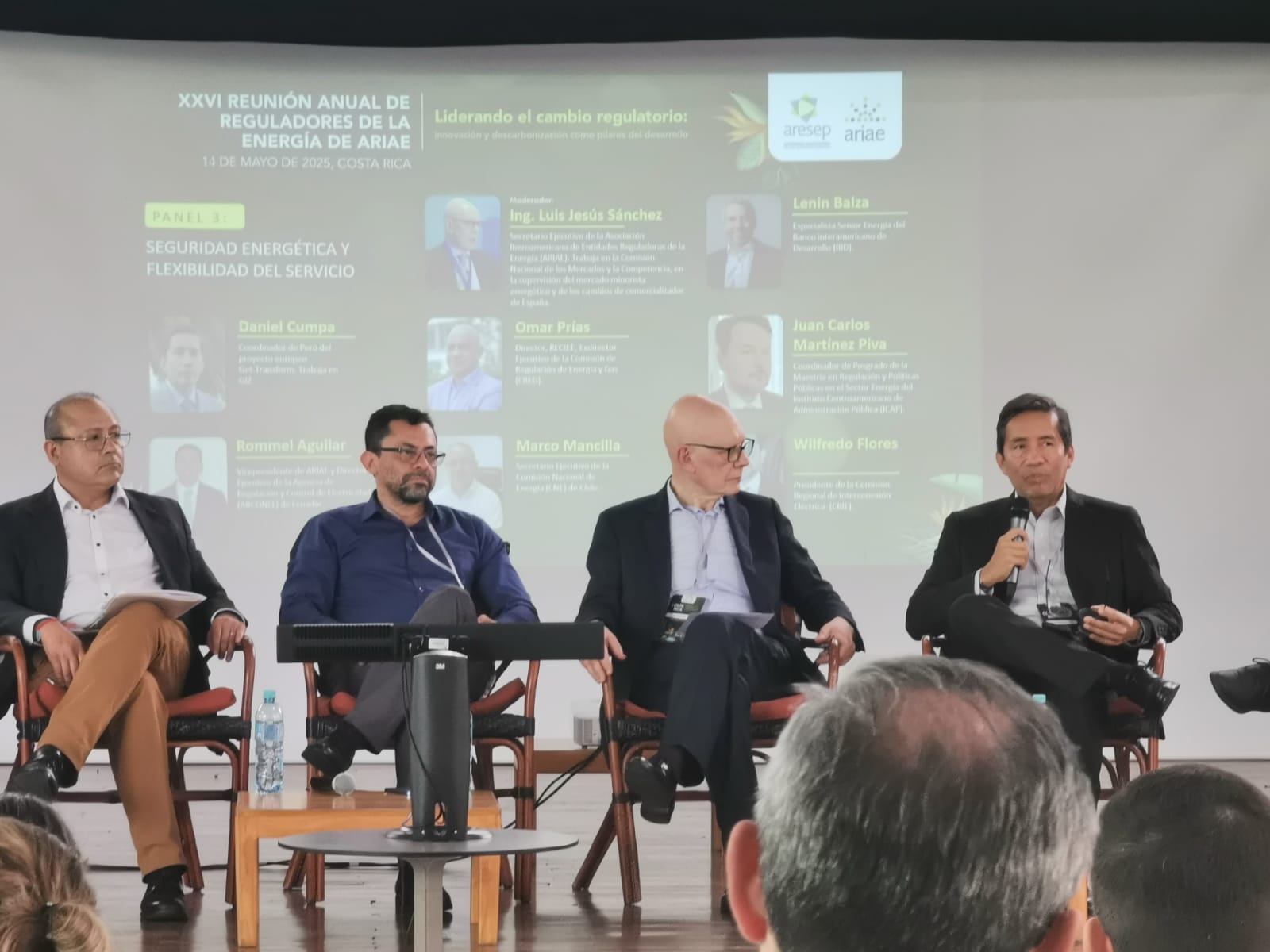The Annual Meeting of the Ibero-American Association of Energy Regulation Entities (ARIAE), recently held in Costa Rica, convened 58 stakeholders from the energy sector to exchange knowledge and strengthen regional cooperation on regulatory strategies that promote a fair and sustainable energy transition. Organised in collaboration with Costa Rica’s regulatory authority Autoridad Reguladora de los Servicios Públicos (ARESEP) and GET.transform, the event provided a dynamic platform for dialogue and shared learning.
The four-day programme encompassed the II Business Forum, the XV Ordinary General Assembly of ARIAE, the XXVI Annual Meeting of Energy Regulators, and a technical tour of renewable energy facilities. Participants visited battery storage, green hydrogen, wind power, and geothermal energy sites demonstrating Costa Rica’s leadership in clean energy deployment.
The Business Forum brought together regulators, ministries, development banks, international organizations, and private sector actors from across the region. Discussions centred on pressing challenges such as the growing electricity demand, the integration of renewables into the grid, electromobility and the decarbonisation of the gas and petroleum sectors. Meanwhile, the Annual Meeting of Energy Regulators explored topics such as the European strategies within the framework of new economic and social policy design, the remuneration of service flexibility and the security of electricity supply.
The attendees represented a broad range of national and regional institutions, including the electricity regulatory authorities from Costa Rica, Colombia, Chile, Brazil, Bolivia, Panama, and Ecuador, along with CRIE, the European Union, the Inter-American Development Bank, the World Bank (ESMAP), CIER, OLADE, NREL, the University of Barcelona, the Central American Institute of Public Administration (ICAP), SEGIB, WPC, GWEC, UNEF, and Schneider.
GET.transform actively contributed through expert presentations on regulatory models to prioritise energy equity and justice as well as energy security and flexibility services for integrating non-conventional renewable energies.
The event served to highlight the growing importance of regional collaboration in accelerating sustainable energy systems, setting the stage for continued partnership and progress within Latin America and the Caribbean.





